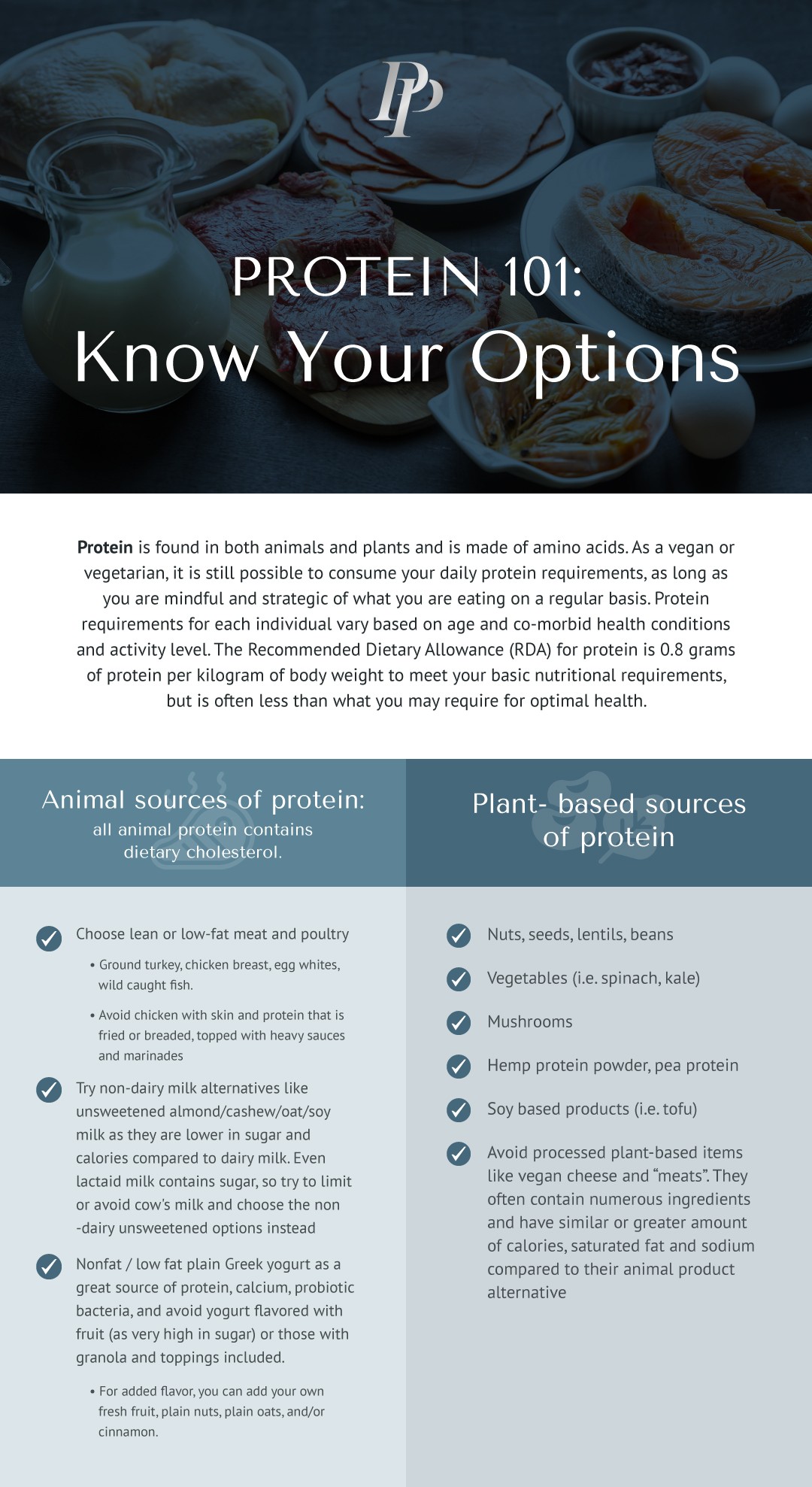Protein is found in both animals and plants and is made of amino acids. As a vegan or vegetarian, it is still possible to consume your daily protein requirements, as long as you are mindful and strategic of what you are eating on a regular basis. Protein requirements for each individual vary based on age and co-morbid health conditions and activity level. The Recommended Dietary Allowance (RDA) for protein is 0.8 grams of protein per kilogram of body weight to meet your basic nutritional requirements, but is often less than what you may require for optimal health.
Animal sources of protein: all animal protein contains dietary cholesterol.
Choose lean or low-fat meat and poultry
Ground turkey, chicken breast, egg whites, wild caught fish.
Avoid chicken with skin and protein that is fried or breaded, topped with heavy sauces and marinades
Try non-dairy milk alternatives like unsweetened almond/cashew/oat/soy milk as they are lower in sugar and calories compared to dairy milk. Even lactaid milk contains sugar, so try to limit or avoid cow’s milk and choose the non -dairy unsweetened options instead
Nonfat / low fat plain Greek yogurt as a great source of protein, calcium, probiotic bacteria, and avoid yogurt flavored with fruit (as very high in sugar) or those with granola and toppings included.
For added flavor, you can add your own fresh fruit, plain nuts, plain oats, and/or cinnamon.
Plant- based sources of protein
- Nuts, seeds, lentils, beans
- Vegetables (i.e. spinach, kale)
- Mushrooms
- Hemp protein powder, pea protein
- Soy based products (i.e. tofu)
- Avoid processed plant-based items like vegan cheese and “meats”. They often contain numerous ingredients and have similar or greater amount of calories, saturated fat and sodium compared to their animal product alternative


